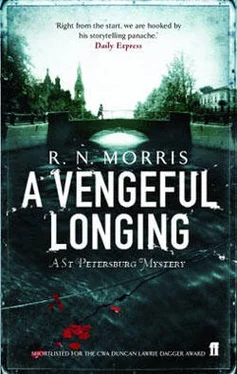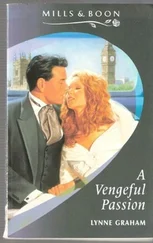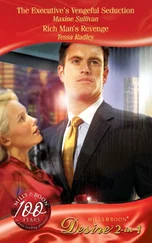R. Morris - A Vengeful Longing
Здесь есть возможность читать онлайн «R. Morris - A Vengeful Longing» весь текст электронной книги совершенно бесплатно (целиком полную версию без сокращений). В некоторых случаях можно слушать аудио, скачать через торрент в формате fb2 и присутствует краткое содержание. Год выпуска: 2008, ISBN: 2008, Издательство: Faber & Faber, Limited, Жанр: Исторический детектив, на английском языке. Описание произведения, (предисловие) а так же отзывы посетителей доступны на портале библиотеки ЛибКат.
- Название:A Vengeful Longing
- Автор:
- Издательство:Faber & Faber, Limited
- Жанр:
- Год:2008
- ISBN:9780571232536
- Рейтинг книги:3 / 5. Голосов: 1
-
Избранное:Добавить в избранное
- Отзывы:
-
Ваша оценка:
- 60
- 1
- 2
- 3
- 4
- 5
A Vengeful Longing: краткое содержание, описание и аннотация
Предлагаем к чтению аннотацию, описание, краткое содержание или предисловие (зависит от того, что написал сам автор книги «A Vengeful Longing»). Если вы не нашли необходимую информацию о книге — напишите в комментариях, мы постараемся отыскать её.
A Vengeful Longing — читать онлайн бесплатно полную книгу (весь текст) целиком
Ниже представлен текст книги, разбитый по страницам. Система сохранения места последней прочитанной страницы, позволяет с удобством читать онлайн бесплатно книгу «A Vengeful Longing», без необходимости каждый раз заново искать на чём Вы остановились. Поставьте закладку, и сможете в любой момент перейти на страницу, на которой закончили чтение.
Интервал:
Закладка:
In the distance, the flames of the rostral towers flickered uncertainly. They held nothing for him, nor was he drawn to them. Beyond them, the city awaited his coming like a spider’s web. But he was already footsore and exhausted. He hungered but had no appetite. There was nowhere for him to go, only a dead and empty dacha to flee from.
He stepped on to a big, stone-built bridge spanning the river’s full width. There were no names any more, not for the island he was quitting, nor even for the city that lay across the nameless river.
At the mid-point of the bridge, he climbed the balustrade and stood for a moment poised against the pull of the turning earth. One step forward would take him away from the swirling clash of music, into silence. He closed his eyes and imagined taking that step. He imagined his fall. How long would he have to flail his limbs in the air? In his mind, the fall took for ever; the slam of the water never came. He opened his eyes and looked down into the lapping darkness.
His body swayed forwards, giving in to the allure of gravity. He looked up, away from the river, tears blurring his vision, and continued to lean into the empty air. A sickening internal shift carried his body with it. He passed the point of control. The lean became a lurch. He felt his legs buckle.
There were voices behind him. Someone called out the words of a psalm.
His arms thrashed out, winging the air. He bent his knees and lowered his centre of gravity to recover his balance.
It was not that he wanted to live. It was just that he could not bring himself to die. He allowed the hands on his legs and waist to pull him back. He surrendered himself to the grip of strangers.
PART THREE
1
‘The Lord is my shepherd: I shall not want!’
Yemelyan Antonovich Ferfichkin shouted the words at the man swaying on the balustrade. He crossed himself twice and moved away from the commotion on the Tuchkov Bridge, away from the memory of the man’s face as he tottered on the railings, balanced for a moment between life and death. He did not wait to see the outcome. The face had seemed familiar. The more Ferfichkin thought about it, the more convinced he became that he recognised the wretch. It was, without doubt, one of his enemies.
‘A suicide is no good to anyone,’ he muttered scornfully. ‘Especially one who throws himself in the Neva.’ He pointed into the air emphatically as he spoke. It was a habit that came from living alone, this talking aloud to himself — or rather to an imagined audience. He had seen children, and even those old enough to know better, laugh at him to his face, not even bothering to hide their mockery behind their hands.
An unaccountable sense of guilt, as if he were to blame for the man’s predicament, hounded him as he moved south. ‘R-r-ridiculous! ’ he called out with a defiant laugh. The glances he attracted were wary. He scowled back and even bared his teeth. It was simply a bizarre coincidence that he should see this man, whose name he couldn’t even remember — ‘German, wasn’t he? That was it!’ — but with whom he had almost certainly quarrelled at some point in the past; that he should see him tonight, on midsummer’s night of all nights, for the first time in God knows how many years, at possibly the ultimate moment of the scoundrel’s life. For, whoever the fellow was, whatever his name, Yemelyan Antonovich Ferfichkin was certain that he had to be a scoundrel. None but scoundrels and sinners took their own lives.
Naturally, it unsettled him. Coming on top of the day’s events, the rather nasty scene with Gorshkov, it was no wonder that it got to him. His nerves were frayed. ‘Understandable,’ he cried.
He had braced himself for the inevitable splash but it had not come and he had moved too far away to hear it now. It hung over him like the sense of unfinished business.
He was tempted to return home. There was work waiting for him there, always work to be done, money to be earned by the plying of the needle, or the weaving of words. There was another one to be buried tomorrow. Ferfichkin would need to spend some time beforehand browsing the Good Book, letting the words enter him, joining the words that were already there, so that he could call on them when he needed them: by the graveside. He needn’t worry, he knew. The right words always came to him.
Again he felt a strange nagging guilt. He was thinking of the Bible in his room and his conscience was not entirely easy. ‘What do you want with me?’ The question was not for the faces that turned to him, faces lit by the promise and excitement of the night. He realised that it was the Bible that had driven him out, that and the terrible, aching loneliness that always came upon him at night, especially in the brilliant, restless nights of summer.
Once it had been his friend. ‘My salvation,’ he even declared, the emotion in his eyes. Had he not taught himself Church Slavonic, in order to accept more wholly the word of the Lord, to take it upon himself and to give it to others? Had it turned against him, or was the fault his own? He could not understand where it had come from, this sense of reproach that he experienced now whenever he was alone with the Bible.
‘A man’s first duty is to himself,’ he pleaded. The silence that answered him held a devastating rebuke.
No, he could not go back home, to the emptiness of his room, and the Bible’s sullen presence.
It was all Gorshkov’s fault, no doubt. The words that man had said to him. ‘How dare he?’ Who did he think he was? Could Ferfichkin be blamed for the other’s improvidence? These people would bleed him dry if he let them.
‘I have to live!’ he called out.
The image of the man who had thrown himself off the Tuchkov Bridge came back to him. He too was probably some feckless wastrel like Gorshkov, a fool who blamed others for the consequences of his own sinful ways. Ferfichkin was not ready to follow him into the Neva, not yet at least.
As he rounded the tip of Vasilevsky Island he repeated the words of the twenty-third Psalm: ‘The Lord is my shepherd: I shall not want.’
Without pausing in his stride along the University Embankment, he took out a battered pewter flask from the inside of his frock coat. The squeak of the cork released a whiff of harsh spirit. He lifted it quickly to his lips, eager for the fierce communion, but also not wishing to spill any of the vodka through the jog of his step.
‘He restores my soul!’ Although his eye was eager now, and his voice enlivened by bravado, there was an edge of desperation to the words. It was more a plea than an assertion.
He was stitching his way across the city, west to east to west again, moving south all the time, and quaffing from the flask with almost every step.
There were tavern doors along his way, with steps leading down to them, but he resisted their beckoning wafts. He had no need of them, not while he had vodka of his own. Besides, he could hide from his enemies in a dark cellar but not from the eyes of the Lord.
He remembered, and recited in Church Slavonic, the words of the twenty-sixth Psalm. He believed he saw wonder in the eyes of those he passed. ‘Yes! I have the word of God within me!’ He shouted a Russian equivalent of the text after them as they fled his excitement: ‘I have not sat down with the vain, neither will I go in with those who dissemble. I have hated the company of evildoers; I will not sit with the wicked.’
He found himself crossing a great sea of paving stones, blue whorls that swam beneath his staggering feet. He thought of Jesus walking on the water. The blasphemy of the connection, to compare himself in a state of inebriation to the Son of God performing a miracle, both frightened and liberated him.
Читать дальшеИнтервал:
Закладка:
Похожие книги на «A Vengeful Longing»
Представляем Вашему вниманию похожие книги на «A Vengeful Longing» списком для выбора. Мы отобрали схожую по названию и смыслу литературу в надежде предоставить читателям больше вариантов отыскать новые, интересные, ещё непрочитанные произведения.
Обсуждение, отзывы о книге «A Vengeful Longing» и просто собственные мнения читателей. Оставьте ваши комментарии, напишите, что Вы думаете о произведении, его смысле или главных героях. Укажите что конкретно понравилось, а что нет, и почему Вы так считаете.












